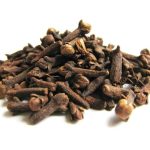Cholera is a severe and potentially deadly diarrheal disease caused by the bacterium Vibrio cholerae. It is usually transmitted through contaminated food, water, or human feces. Outbreaks often occur in regions with poor sanitation, overcrowding, and limited access to clean water. However, the risk of cholera can be greatly minimized through awareness and preventive actions. Here are 10 steps to prevent cholera:
Drink Safe Water: Ensure that drinking water is clean and treated. Boil, filter, or use water purification tablets if needed.
Practice Good Hygiene: Wash hands frequently with soap and clean water, especially before eating or preparing food.
Use Proper Sanitation: Ensure that toilets and latrines are clean and properly maintained. Avoid open defecation.
Avoid Contaminated Food: Eat only food that has been cooked thoroughly and avoid raw or undercooked seafood and other high-risk foods.
Maintain Clean Cooking Practices: Use clean utensils and cookware. Store food in hygienic conditions and cover it to prevent contamination.
Proper Waste Disposal: Dispose of waste properly to avoid contamination of water sources and the environment.
Safe Food Handling: Wash fruits and vegetables with safe water before eating or cooking.
Boil or Treat Water for Washing: Use treated or boiled water for washing fruits, vegetables, and cooking.
Educate Communities: Raise awareness about cholera prevention methods within communities, emphasizing the importance of hygiene and sanitation.
Seek Medical Attention Early: If symptoms of cholera, such as severe diarrhea and vomiting, appear, seek medical care immediately to receive prompt treatment.




